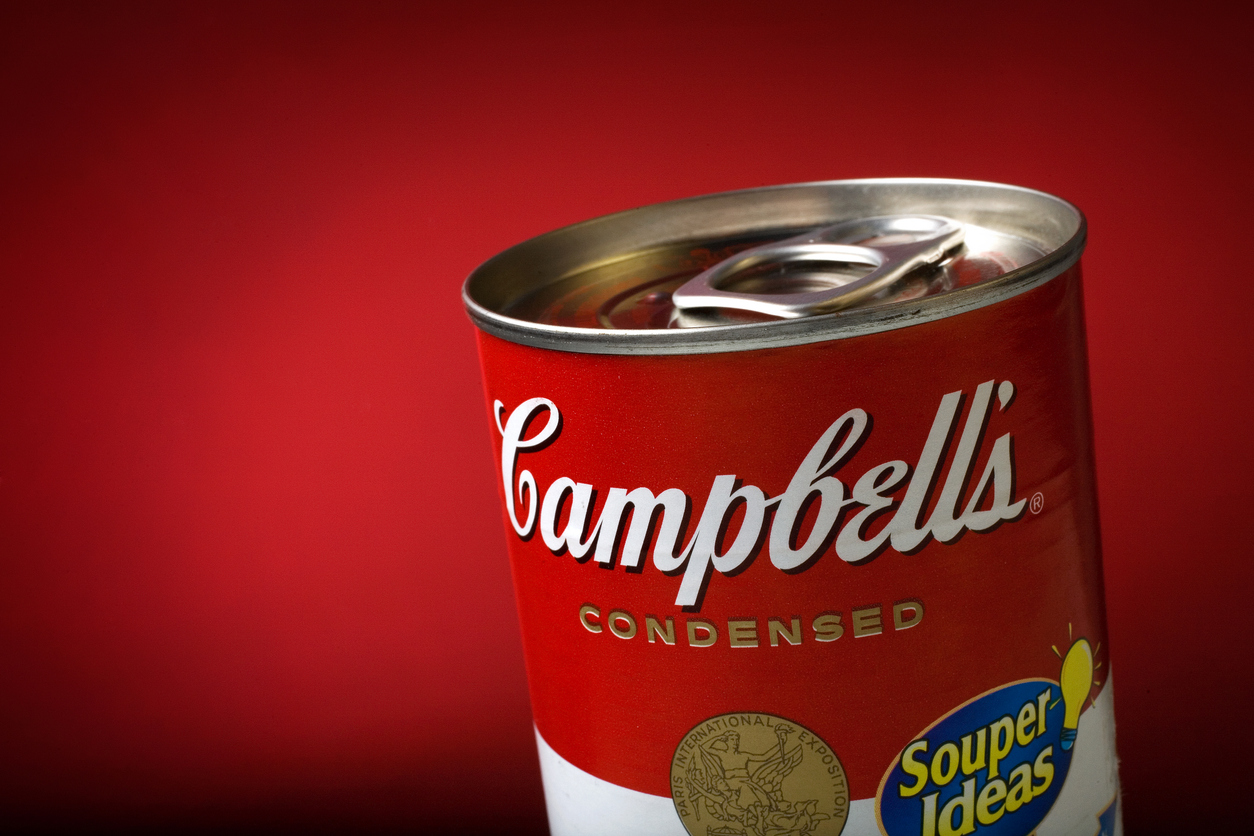
Camden, New Jersey-based The Campbell's Company (CPB) manufactures and markets food and beverage products. Valued at a market cap of $11.7 billion, the company’s portfolio includes well-known brands such as Campbell’s, Swanson, Pacific Foods, Prego, and V8 in the meals and beverages segment, while its snack division features popular names like Pepperidge Farm, Goldfish, Snyder’s of Hanover, and Cape Cod.
Companies valued at $10 billion or more are typically classified as “large-cap stocks,” and CPB fits the label perfectly, with its market cap exceeding this threshold, underscoring its size, influence, and dominance within the packaged foods industry. The company is known for its strong brand recognition, diversified product portfolio, and extensive distribution network, spanning supermarkets, convenience stores, and foodservice channels across North America. With a history of strategic acquisitions and brand expansion, Campbell’s continues to strengthen its position in the industry while adapting to evolving market trends.
Despite its notable strength, this food and beverage company has slipped 25.1% from its 52-week high of $52.81, reached on Sep. 10, 2024. Moreover, it has fallen 5.3% over the past three months, underperforming the First Trust Nasdaq Food & Beverage ETF’s (FTXG) 1.6% gain over the same time frame.

In the longer term, Campbell's has declined 10.2% over the past 52 weeks, lagging behind FTXG’s 5.2% downtick over the same time frame. Moreover, on a YTD basis, shares of CPB are down 5.5%, compared to FTXG’s 2% gain.
To confirm its bearish trend, CPB has been trading below its 200-day moving average since early November, 2024, and has remained below its 50-day moving average since late September, 2024, despite some fluctuations.

On Mar. 5, CPB’s shares closed down nearly 2.9% after its mixed Q2 earnings release. While revenue increased 9.3% year-over-year to $2.7 billion, primarily driven by the Sovos Brands acquisition, it fell 1.8% short of Wall Street expectations. A decline in organic sales due to softness in some of its snacking categories led to its top-line miss. Adding to investor concerns, Campbell lowered its full-year 2025 guidance, citing ongoing challenges. The company now expects net sales growth between 6% and 8% and forecasts adjusted EPS in the range of $2.95 to $3.05. Additionally, mainly due to a rise in interest expenses, its Q2 adjusted EPS fell 7.5% year-over-year to $0.74. However, on the brighter side, the bottom-line figure surpassed the consensus estimate of $0.73.
CPB has outpaced its rival, General Mills, Inc. (GIS), which declined 14.4% over the past 52 weeks and nearly 6.5% on a YTD basis.
Looking at CPB’s recent underperformance relative to its industry peers, analysts remain cautious about its prospects. The stock has a consensus rating of “Hold” from the 18 analysts covering it, and the mean price target of $41.61 suggests a slight 5.1% premium to its current levels.







